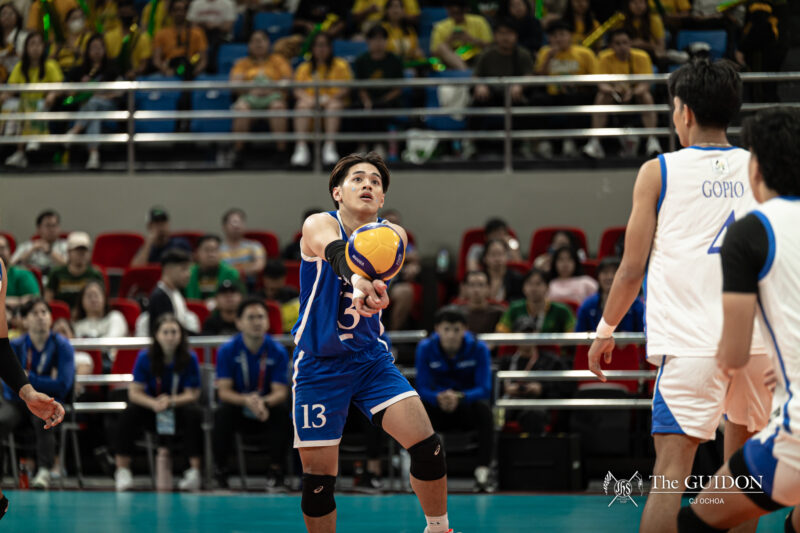DESPITE BEING known for its additional core subjects anchored on Catholic faith, the Ateneo strives to become a more progressive institution amid a conservative background. This identity of the University—along with its revered academic reputation—has attracted many students of different contexts, including those who subscribe to other religions.
While the University generally guarantees courtesy and respect to all students regardless of faith, non-Catholic Ateneans’ religious needs tend to be overlooked through a lack of programs, conversations, and spaces for their spiritual welfare. This gap includes the lack of awareness about prayer rooms and a perceived need for more interfaith dialogue, among others.
Sectarian stories
Part of the Ateneo’s non-Catholic population is Beatriz Cuenca (2 BS MAC), a devout Pentecostal Christian.
Converting from Catholicism in 2019, Cuenca describes her entry to the Ateneo to be smooth. She explains that both religions have the same belief in the Holy Trinity, with the exception of giving reverence to sacred figures and saints.
As someone from an all-girls Catholic school, Cuenca finds comfort in meeting other Christians, and even in her Catholic friends. She shares that they have helped her feel a sense of belongingness within the community.
While Cuenca’s religion is akin to Catholicism, David Antonio (2 BS CH-MSE) belongs to the Ateneo’s small Islam community. A Tausug native from Jolo, Sulu, he initially saw religion as a family-imposed belief that later became a personal choice.
As a practicing Shia Muslim, Antonio has to balance his academic responsibilities with his religious duties and obligatory prayers called Fard. However, he usually misses his 12 PM and 3 PM prayers due to class conflicts. Despite the struggle, he devoutly practices his other obligations and avoids the prohibitions stipulated to him as part of the Islamic faith.
When discerning where to attend college, Antonio shares that he did not mind Ateneo’s Jesuit identity, instead considering its stature as one of the country’s top universities. Being offered the coveted Magis Scholarship is what also encouraged him to pursue his studies at the Ateneo.
While they come from different religious backgrounds, both Cuenca and Antonio appreciate the emphasis on character formation in Ateneo’s faith-based subjects, providing a more holistic learning experience.
Pious perspectives
Included in the University’s curriculum are the Theology subjects. Theology Assistant Professor Edwin Odulio, PhD describes these courses to be opportunities for students to make their faith helpful in understanding their present conditions.
These classes have allowed Antonio to learn about the similarities between Islam and Catholicism. Meanwhile, Cuenca notes that her Theology classes were “fun, open, and accommodating,” as the teachings were also aligned with her beliefs. However, her experience may not be shared, as she says that some classes teach the subject with a stringent approach to memorization.
Acknowledging this reality, Odulio stresses the value of transcending beyond tolerance in class discussions, asserting that non-Catholics have a part in diversifying religious conversations. During his classes, he ensures appropriate spaces for students’ varied views.
Similarly, Office of Campus Ministry (OCM) Director Tina Sollorano highlights the importance of interfaith harmony, given the student population’s religious diversity. As of last year, the OCM reports that around 70–75% of Ateneans are Catholic. The remaining percentage is distributed among other groups, with 13–20% identifying as part of a Christian denomination, and less than 10% for agnostics, atheists, and Muslims.
With the current demographic, Sollorano recognizes the need to provide students with more avenues to foster appreciation and respect for the diverse beliefs on campus.
In 2014, two non-Catholic prayer rooms in the Manuel V. Pangilinan Center for Student Leadership building were established for students to freely practice their religion. In the same year, the Sanggunian passed the Religious Support Act to promote an interfaith environment. However, no significant progress in creating more spaces has been made since then.
Cuenca finds the campus spaces for practicing her faith to be unheard of and “fairly limited.” She states that information about the prayer rooms should be made known more to other people as she has never been made aware of these facilities.
According to Sollorano, OCM’s initiatives for the second semester include the training of interfaith program facilitators, as well as transitioning from online talks to onsite programs. The office has also partnered with student-led programs, most notably the Ateneo Student Catholic Action, to address limited interfaith activities within the University.
Bridges between beliefs
While efforts are currently being done to connect Ateneans of different faiths, students like Cuenca still approach discussions about her religion with caution to avoid appearing overly assertive or forceful.
Cuenca worries that her beliefs may not be understood or accepted. Her apprehensions stem from fear of peers mistakenly associating her to be part of a cult. “We should be able to understand people from different faiths so that we can understand their background,” Cuenca says.
Despite this concern, both she and Antonio appreciate the University’s inclusive environment for non-Catholic students like them. During his stay on campus so far, Antonio boldly claims that “discrimination really has no place [in] Ateneo.”
Meanwhile, Odulio mentions the Theology Department’s plan to integrate LGBTQ+ and gender-related issues into its subjects.
“Hopefully, all the things that you learned from Theology are not just elements that you will repeat in exams, but you will use [them] in understanding your role in the world and in society, as Catholics, as Christians, or as people from other [faiths],” Odulio remarks.
As religious diversity becomes evident, the Ateneo is called to further expand its faith-inclusive spaces. Addressing the existing gaps in interfaith dialogue will allow more non-Catholic Ateneans to openly and freely practice their faith within campus grounds.







